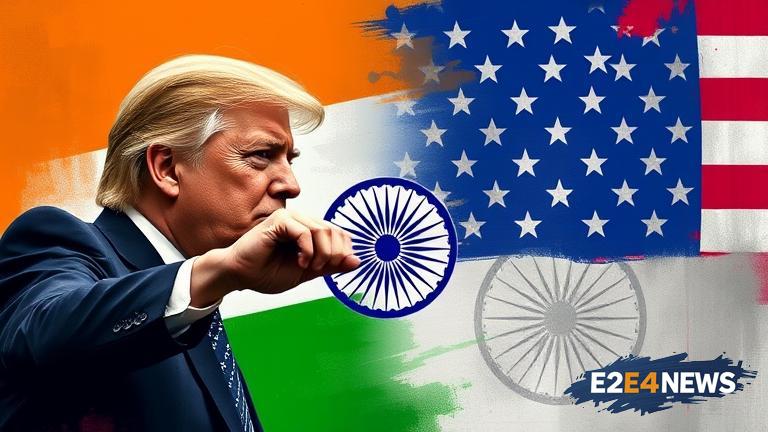The relationship between India and the United States has been put to the test after US President Donald Trump threatened to impose steeper tariffs on India. This move has been met with criticism from Indian leaders, including Congress leader Jairam Ramesh, who mocked the special bond between Trump and Indian Prime Minister Narendra Modi. Ramesh’s comments came after Trump’s announcement that the US would be imposing higher tariffs on India due to its trade practices. The US President has been vocal about his dissatisfaction with India’s trade policies, which he claims are unfair to American businesses. India has been one of the largest beneficiaries of the Generalized System of Preferences (GSP), a program that allows developing countries to export goods to the US at zero or reduced tariffs. However, Trump has threatened to withdraw India’s GSP benefits, citing India’s failure to provide equitable access to its markets. The Indian government has responded by saying that it is willing to negotiate with the US to resolve the trade issues. Despite the tensions, the Indian government has maintained that the relationship between the two countries remains strong. However, the opposition parties in India have been critical of the government’s handling of the situation, with some accusing the government of failing to stand up to the US. The trade tensions between the two countries have been escalating over the past few months, with the US imposing tariffs on Indian goods such as steel and aluminum. India has retaliated by imposing tariffs on US goods such as almonds and apples. The trade war between the two countries has had a significant impact on businesses and industries on both sides. The Indian economy, which is already facing a slowdown, is likely to be affected by the trade tensions. The US is one of India’s largest trading partners, and any disruption in trade between the two countries could have far-reaching consequences. The Indian government has been trying to diversify its trade relationships and reduce its dependence on the US. However, the US remains a critical market for Indian exports, and any trade war could have a significant impact on Indian businesses. The situation has been further complicated by the upcoming US presidential elections, with Trump facing criticism from his opponents for his handling of trade relationships. The Indian government has been trying to navigate the complex web of US politics to protect its trade interests. Despite the challenges, the Indian government remains committed to strengthening its relationship with the US. The two countries have a long history of cooperation on issues such as counter-terrorism and defense. However, the trade tensions have put a strain on the relationship, and it remains to be seen how the situation will unfold. The Indian government has been engaging with the US administration to resolve the trade issues, but a solution remains elusive. The trade war between the two countries has also had an impact on global trade, with other countries watching the situation closely. The World Trade Organization (WTO) has been trying to mediate the trade dispute between the two countries, but a resolution has not been reached yet. The trade tensions between India and the US have also had an impact on the global economy, with investors watching the situation closely. The situation remains fluid, and it remains to be seen how the trade tensions between the two countries will be resolved.





